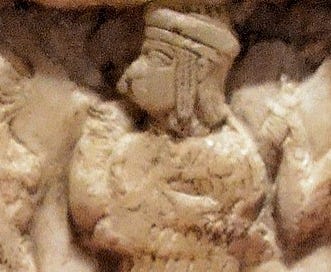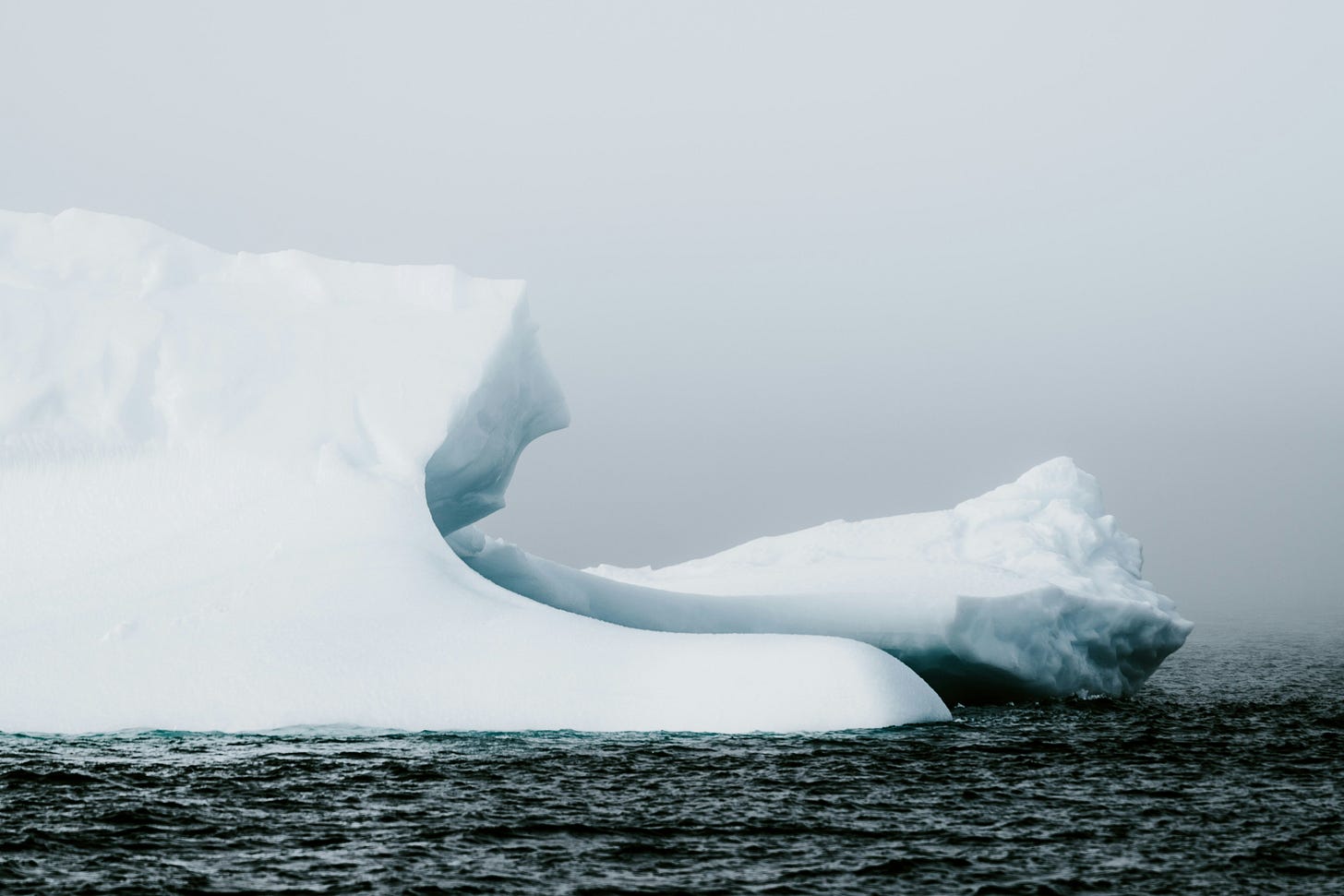Change Everything No 26: Celebrating the 'first author' and Neolithic engineers
Human history: longer, more complex, and far richer than commonly told, and definitely not a story of linear progress
Book news
Thank you very much Robert for this review of Change Everything, the book. Like “a chainsaw through a daisy patch” - has a very Australian feel to it!
If you’d like your own copy, in the UK you can help independent bookstores with this print or e-book purchase.
Enheduanna - let’s know her name
Who was the world’s first author (at least that we know about)? You might come up with Homer, or Hesiod. But that’s wrong, and way too late, by about 1,500 years.
The answer is Enheduanna (2285-2250 BCE), high priestess of the moon deity Nanna-Suen, a politically powerful role in what may have been the world’s first empire. She is named as the daughter of King Sargon of Akkad (Sargon the Great), although that might be an honorary designation.
(From the Disk of Enheduana)
We have remaining 42 temple hymns and three stand-alone poems, which were published in a new translation by Sophus Helle last year. An exhibition in New York in 2022 (well reported by the BBC) sought to raise her profile, but there is still a long way to go!
These are no dry, dull paens of godly praise. Often most noted are those written after Enheduanna was deposed in political turmoil. She lamented the difficulty of writing in the face of the disaster: “My honey-mouth is full of froth, my soothing words are turned to dust”. She turns then from the moon goddess to her far more dauntying daughter, Inana (who has a bit of a Kali feel, being the patron god of war, sex, change and destruction, with is, as Enheduana says, daunting. The power is off the scale.
To destroy and
to create, to pluck out
are yours, Inana.
To turn men into
women, to turn
women into men
are yours, Inana….
To step, to stride,
to strive, to arrive
are yours Inana.
To turn brutes
into weaklings,
and to make the powerful puny,
are yours, Inana. (Hesse’s translation - and I am drawing on his reflections)
The structure of Exhaltation is as sophisticated and satisfying as any critic could want. Enheduanna meets Inana in the dead of night and metaphorically gives birth to the poem. Those are the final verses - they turn a complete circle explaining how what came before was brought into existence. Then an epilogue indicates that it all worked out: Enheduanna was restored to her position.
Did she actually write them - personally I tend towards an Ockam’s razor approach - why should we assume she did not? - but even if she didn’t, the idea of authorship is being born long before we had thought.
A Substack today landed in my inbox (I will be charitable and not link to it) extolling the Classical Greeks, particularly Athenians, as the founders and foundation of our society today. I mean please, are we still listening to their propaganda? Our history has far more diverse, and far older, sources than that. There was nothing particularly special about the Classical Greeks, and human history is not a teleological run of “progress” to us today. (I wrote about Naoíse Mac Sweeney's great takedown on the idea of “Western Civ” The West: A New History of an Old Idea a few Substacks ago.)
Humans (and our relatives) have been doing amazing things - being creative, cooperative and constructive - since they evolved on this planet. Yet, we still keep being shocked, just blown away, by what archaeology is telling us. “Neolithic Engineers Understood Science,” screamed headlines this week, referring to a dolmen, a stone chamber, built in what is now Spain about 3,700BCE.
A previous study by the same team had already established that the stones were sourced from 0.6 miles away, at a quarry that sits at a strategically higher elevation than the Menga dolmen. The builders would have most likely transported the stones using sleds on a track made from wooden beams, which implies a knowledge of friction, acceleration and center of mass. Once at the site, the stones making up the walls and columns were placed upright into deep cavities so that up to one-third of each stone was underground. Builders probably achieved this using counterweights and ramps that had to take into consideration the relatively soft—and thus easily damaged—nature of the sandstone rock. The wall stones were carved to interlock with and lean against each other, adding to the stability of the structure. The walls tilt slightly inward—standing at angles between around 84 and 85 degrees—so that the top of the chamber is narrower than the bottom in a trapezoidal shape. The largest of the five capstones was carved to increase stress distribution—essentially creating a rudimentary arch—with its center higher than its sides.
Well yes, they wanted to do something. There were physical challenges. They no doubt thought hard about them, and solved them. A statement I keep finding myself repeating: they were just as smart and creative as we are today.
And 11,000-year-old hunter-gatherers’ homes in North Yorkshire were NOT surprisingly organised: “the messy activity involving butchery, for example, was done in what appears to be a designated space, and separate to the ‘cleaner’ tasks such as crafting bone and wooden objects, tools or jewelry.” Yes, they were nomads, but so were the Mongols, who conquered a good part of Eurasia. Why are we still carrying around these Victorian-era ideas of people in the past being somehow doltish or brutish, waiting for someone to come along and “civilise” them? Or of nomads being somehow inferior to settled peoples?
Why are we not acknowledging the early genuine advances of “the East”, as the Greeks and the Romans, and the Victorians, called it, in Mesopotamia. - in literature and political organisation (the Old Assyrian empire had a mixed constitution that included democratic assemblies). Maybe the failures to move on from Victorian thinking in this - and many other areas - needs to be tackled? Maybe it exposes attitudes still having disastous impacts in the politics of today?
Picks of the week
Reading
A recommendation from last year, but seems fitting given where I started: Left Feminisms: Conversations on the Personal and Political, from which I made some notes. Declaration of interest, I know quite a few of the interviewees - or at least have shared platforms with them - and they are all worth reading!
Listening
Historian Daniel Todman tells the New Books Network that we are only now, just about, able to get some sort of reasonable historical perspective on the Second World War, and I suspect he is right - the papers have been declassified, largely, the people responsible are no longer around to worry the libel lawyers, and writers do not generally have a personal dog in the race. And this interview definitely made me want to read Todman’s combination of military, economic and social perspective. And find out more about the enormous Sub-Continent contribution to the Allied war effort against Hitler and the Japanese. Why has this got so little attenion? The way the immediate histories of the war was written - Churchill deliberately downplays the role because he was furious about the “loss” of India, and because he was rampantly racist. “No way he was going to foreground the contribution of Indian soldiers.”
Thinking
Burning coal and other fossil fuels has got us into the climate emergency. But the pollution goes far beyond that. The hideous toxic metal mercury is released by such combustion, and other human industrial processes. Much of it has been carried into the Arctic by the winds, and trapped there by plants, which were then frozen in permafrost. "Over centuries, mercury has built up in the frozen ground, such that today, Arctic permafrost may hold more mercury than the atmosphere, the oceans and every living organism combined." And new research shows this level is even higher than previously thought. What a mess we have made on this poisoned planet.
Arctic melt - not just sea-level rise to worry about. Photo by Annie Spratt on Unsplash
Researching
“A central assumption in bacterial biology is that heritable physical characteristics are determined primarily by DNA,” said Professor Adilson Motter of Northwestern University. But that is wrong. As the good Professor himself has helped to show, with fascinating research. He and his team, studying that lab classic E. coli, found genes can be “temporarily perturbed”, either disabled or revved up. Subsequent generations have the same genes as their predecessors before perturbation, but may not look and behave the same way. They have even started to understand why it may or may not work. “When a perturbed gene is located close to a “strongly connected component" of the regulatory network, it is more likely that the effects will carry on.” I will try not to scream the next time I hear someone suggesting genomes are like a machine blueprint.
Bacteria - not like a machine. Photo by Michael Schiffer on Unsplash
Almost the end
Finally, since I started on women writing religious texts, I have to mention the Eastern Roman nun Kassia, or Saint Kassiana, said to be the earliest female composer whose music has survived to the present day. (You can listen to some of it on that link.) Does this historical distortion sound familiar?
She founded a monastery in the west of Constantinople, near the Constantinian Walls, and became its first abbess. Although many scholars attribute this to bitterness at having failed to marry Theophilos and becoming Empress, a letter from Theodore the Studite indicates that she had other motivations for wanting a monastic life.
What did you think?
You can also find me on Instagram, Facebook, LinkedIn, TikTok and X.








Awesome gutsy comment Natalie and covering close to much that I have read also. Horrors so real, male driven Treaty of Tordesillas,VOC, EIC (well, Elizabeth l charter) opium cannonballs counted in thousands of tons. Follow 2 Hong Kong companies and a Howqua you will find 15 US presidents, an HSBC chairman, the MIC and a large chunk of the funding for rail and the industrial revolution pollution. One now has close to half a million employees mostly in SE Asia. The irony of Chinese Century of Humiliation is they now produce the opioid for Fentanyl. Empire indeed !
Fabulous music! And yes indeed, nothing changes:
"I hate the rich man moaning as if he were poor."
As true today as in 9th century Constantinople, and still ignored by many who claim to be Christian... Naming no names!